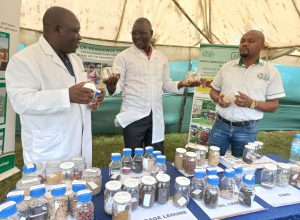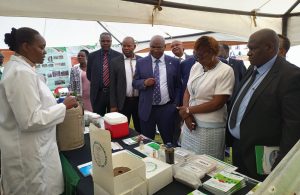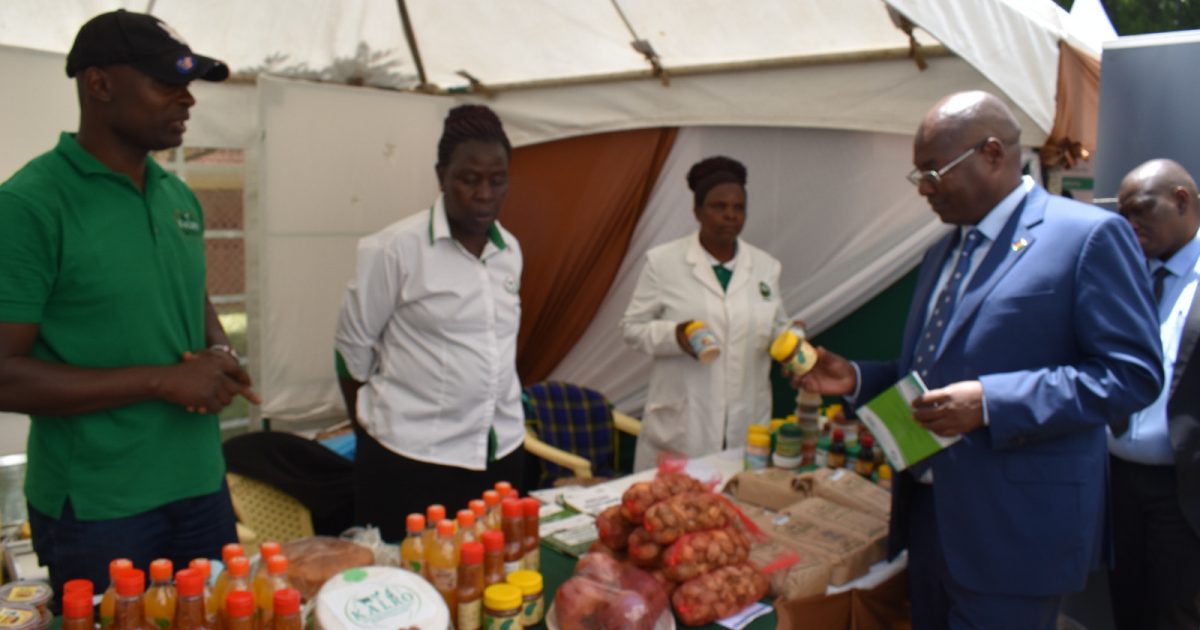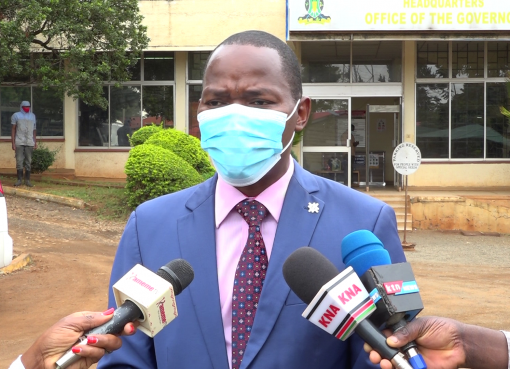Stakeholders in the Agriculture sector have been urged to take keen interest in the digital and artificial intelligence revolution to cope with the changing technological trands in the sector
These according to the Agriculture and Livestock Cabinet Secretary Mithika Linturi are critical to march the global trends and fully exploit their agricultural potential to revolutionize ways of doing business from precision farming to e-extension services.
In a speech read on his behalf by the Principal Secretary State Department for Livestock, Ministry of Agriculture Harry Kimtai during opening of the 1st Kenya Agricultural Livestock Research Organization (KALRO) scientific conference and exhibition, the CS noted that by harnessing the power of digital technologies, farmers can be connected with information, resources, and markets successfully.
“Climate change is one of the biggest threats today, so it is essential to develop innovative solutions, such as smart agriculture to mitigate adverse effects, and to ensure sustainable livelihoods, food and nutrition security for our people”, the Linturi said .
The CS lauded the discussions that will be held in the conference that focus on innovative technologies in food, horticultural, and industrial crops, as well as livestock genetic improvement, disease control, feeds and feeding, emerging livestock species, and blue and green economies.

KALRO, he noted, has made significant advances in agricultural, livestock and innovative solutions that respond to emerging challenges through research that has led to the development of crop varieties, improved livestock breeds, and innovative technologies that are helping farmers to produce more, and secure their livelihoods.
“ KALRO cannot realize its legal mandate which is directly in line with our development blue print Vision 2030 without catalyzing the adoption of modern technologies in the agriculture sector.”, the CS said adding that towards this the organization has adopted Agricultural Product Value Chain (APVC) approach in its mandate and implementation with its strategic plan identified as the application of cutting edge research techniques such as biotechnology tools and participatory research to catalyze the growth of this sector.
At the same time , PS Kimtai on the sidelines said that the government is focusing more in the agriculture and especially funding towards research, noting that the new varieties and technologies development would be difficult to achieve with no funding .
“ Without funding it is going to be difficult to increase our productivity thus the need to direct more funding to KALRO in order for them to release more products that the farmer can benefit from and the government is doing this currently “, he assured
Kimtai urged the private sector to come together with KALRO in promoting and commercializing the new varieties produced saying that is the only way the country can increase its productivity.
KALRO Director General Dr. Eliud Kireger said that for the last ten years now, KALRO has continued to conduct research of strategic national importance to support the agricultural and livestock sector in Kenya.
He noted that the common goal of their research has been to increase agricultural productivity and build resilience to climate change risks among smallholder farmers and pastoral communities in Kenya to enable them to become full players in specific value chains.
“Our main research has been evident in crops, livestock and cross cutting research programmes like environment and natural resource management and, socio economics and policy development”, he said
In crops, the DG explained that the emphasis has been on development of new drought resistant and high yielding climate smart technologies while livestock research emphasis is on adaptation strategies to minimize impacts of climate change, emerging livestock diseases, vaccine development to manage the diseases, and pasture establishment.
“We are supported by 3,000 strong human capital, development partners and collaborators and our scientists fully understand that sustainable and climate resilient agricultural systems, and impact-oriented solutions are the new paradigms underpinning our funding and partnerships.

The biggest achievement for KALRO, Dr. Kireger said has been in the digitization of their technologies considering that the biggest challenge has been between research and extension services
“ We have focused on digitizing technologies so that it is available to farmers through and e-extension platform using digital tools and also through a 7 to 7 call center where farmers on the ground can access information through various applications “, he added
Going forward, especially from the severe drought situation that has grappled the country, Dr. Kireger said the climate smart technologies being used will play a good role in the country’s food system both in livestock and crops noting that irrigation, soil and water conservation as well as soil management being key are of focus .
KALRO is now hosting big data platform, and is the custodian of Kenya’s farmers register. Through these resources, we hope to revolutionize the way we do agriculture, from precision farming to e-extension services. By harnessing the power of digital technologies, we can connect farmers with the information, resources, and markets successfully, Dr. Kireger said
Today’s conference coincided with the 10th anniversary decade of existence since establishment of KALRO, taking stock of achievement and challenges and simultaneously showcasing the wealth of products and services in all KALRO Centres and Institutes countrywide.
The KALRO research infrastructure boasts of 17 Research Institutes and 57 Centres that are strategically spread in the country to cater for different disciplines and value chains, agro-ecological zones and socio-economic systems.
The Scientific Conference and Exhibition is running under the theme “Transformative agricultural technologies, innovations and management practices for food and nutrition security, income and climate resilience”
By Wangari Ndirangu





